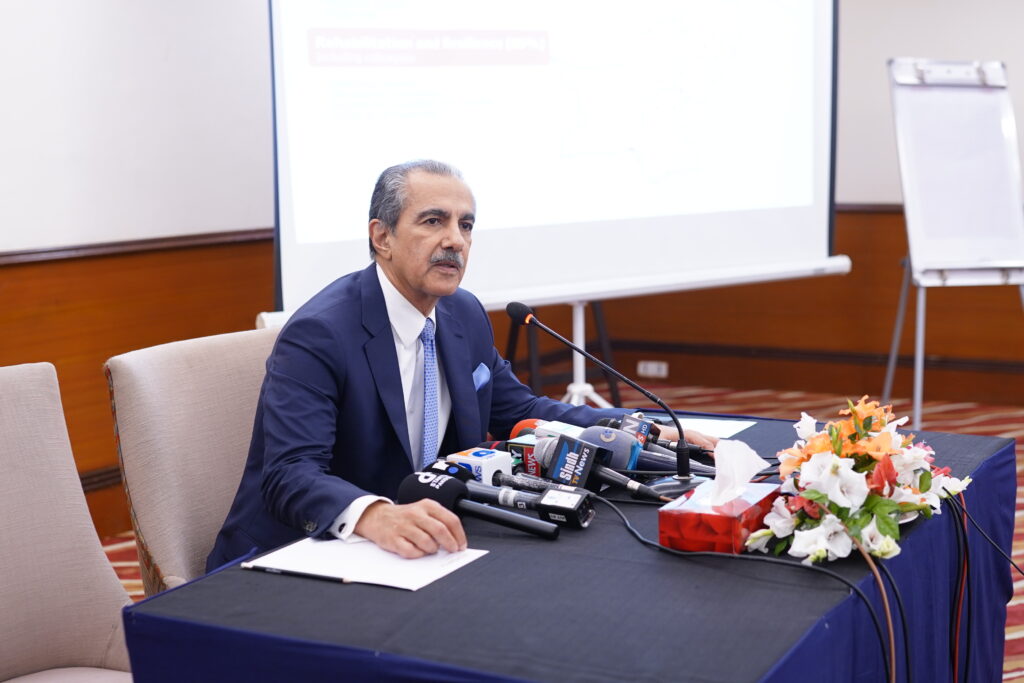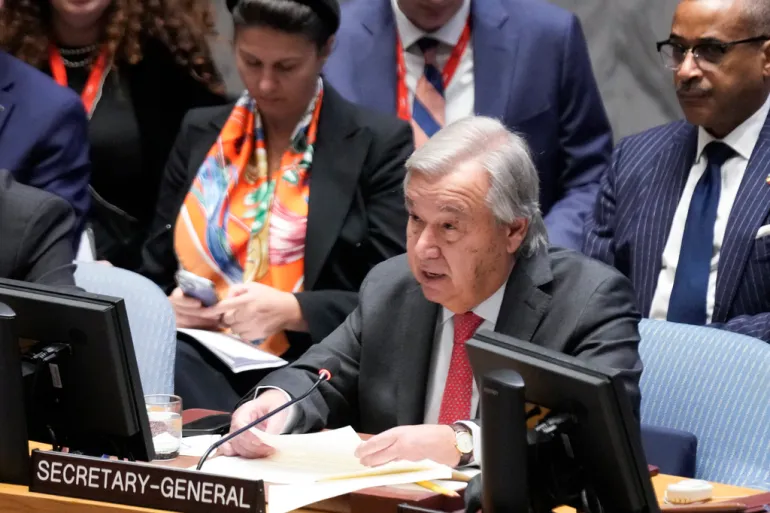Ashraf Khan

Karachi: Bank Alfalah has announced an additional USD 5 million (PKR 1.4 billion) commitment to help rebuild communities devastated by the 2025 floods, bringing its total contribution to USD 15 million since the 2022 disaster.
The announcement was made by Atif Bajwa, President and Chief Executive Officer of Bank Alfalah, during a press conference in Karachi. The bank’s Chairman, His Excellency Sheikh Nahayan bin Mubarak Al Nahayan, and the Board of Directors approved the funding as part of the institution’s ongoing effort to support recovery and resilience in flood-affected areas.
“At Bank Alfalah, we aspire to be more than a financial institution; we are a caring bank,” said Bajwa. “We are deeply grateful to our Chairman and Board for this generous pledge. It reflects our shared belief in rebuilding lives and strengthening climate resilience.”
The newly allocated funds will be distributed through partner non-governmental organisations (NGOs) to restore infrastructure, rebuild livelihoods, and enhance resilience across Punjab, Khyber Pakhtunkhwa, and Gilgit-Baltistan. The initiative includes a multi-sector development program focusing on housing, education, healthcare, and climate-smart agriculture to ensure sustainable rehabilitation.
The 2025 floods have intensified Pakistan’s climate crisis, compounding the destruction caused by the 2022 floods, which affected over 33 million people nationwide. Despite ongoing aid efforts, more than eight million displaced individuals continue to face severe challenges related to housing and public health.
Following the 2022 catastrophe, Bank Alfalah had launched a USD 10 million response plan that covered immediate relief and long-term rehabilitation in Sindh and Balochistan. The new allocation underscores the bank’s continued role in national disaster response, as northern Pakistan faces fresh devastation this year.
According to UNICEF, at least 946 people, including 255 children, have lost their lives in the 2025 floods, with over 1.5 million displaced in Khyber Pakhtunkhwa and Punjab, while flash floods and glacial lake outburst floods continue to impact Gilgit-Baltistan.























